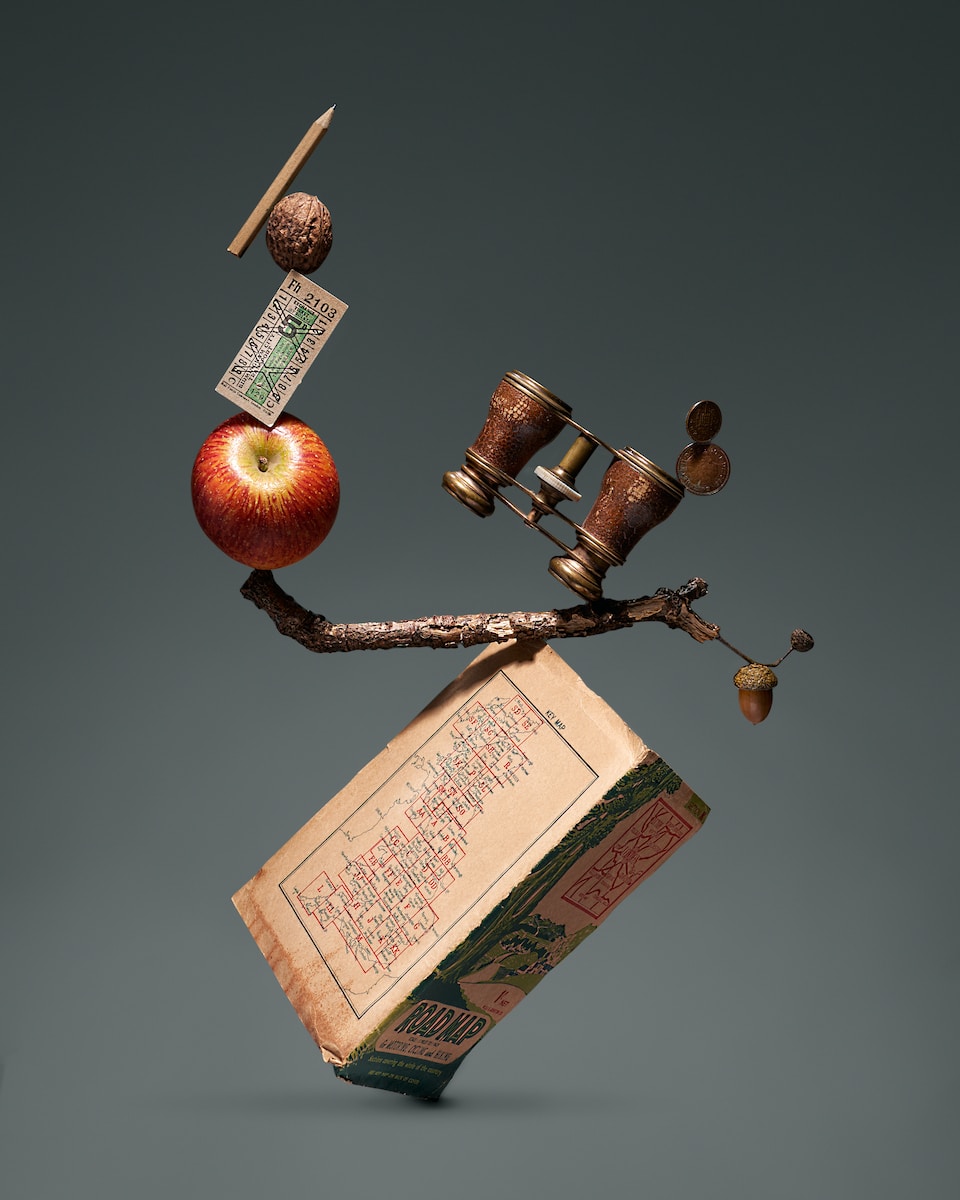THOUGHTS, IDEAS, QUESTIONS, PROCESS, LESSONS,
Student Post
IMPROVISATION is A LIVING THING
OSHOW – Week 1
* English translation after the original Japanese:
あっという間に1週目が終わった。早い。なんでこんなに早いんだろう。多分家にいるからかもしれない、ショーンの家に。僕らは基本的にショーンの家で生活し、クラスもショーンの家で行う。ちなみにスクールのメンバーは全部で5人。日本、中国、カナダ、インド、オランダと、多種多様な国の国際的チーム。実は後3人ほどいたのだが、スケジュールの都合で来られなくなってしまったらしい。まあとにかく、メンバーのほとんどはショーンの家で生活を共にしてるので、さあクラスだ!という気負いがない。むしろ人生の延長線上、生活の一部にインプロがある感じだ。
その感覚はクラスを通しても味わっている。ショーンがかつて言ってた言葉で印象的だったのが「インプロは宗教のような絶対的な概念ではなく、関係性の間に存在する生き物のようなものだ」というものだ。ショーン・キンリーはキース・ジョンストンの愛弟子であり、彼の創設したルースムースシアターのディレクターでもあり、これまでに60カ国で指導やパフォーマンスを行ってきた鉄人だ。そんな彼はその国際的な経験を通して、それぞれの文化や人それぞれの持つ違いを重視している。キース・ジョンストンという巨大な哲学の上に立っているものの、その時その瞬間その人から生まれたものであり、それをいかに生かしていくかということを常に考えている。
 だから彼はクラスの中だけでなく、日常の中にもインプロを見出す。街を歩けば「いろんな人の歩き方や態度、仕草を観察してみよう。どんなメッセージがあるかな?」とか、気の良いスタッフに会えば「さっきの人はなんで僕たちにインスパイアを与えたと思う?」など、常にインプロバイザーとして人生の全てを見つめる態度を示してくれる。そういえば誰かがプロフェッショナルについて「常に自分の仕事と結び付けて考えてしまう人」と言っていたが、まさにこのことかもしれない。
だから彼はクラスの中だけでなく、日常の中にもインプロを見出す。街を歩けば「いろんな人の歩き方や態度、仕草を観察してみよう。どんなメッセージがあるかな?」とか、気の良いスタッフに会えば「さっきの人はなんで僕たちにインスパイアを与えたと思う?」など、常にインプロバイザーとして人生の全てを見つめる態度を示してくれる。そういえば誰かがプロフェッショナルについて「常に自分の仕事と結び付けて考えてしまう人」と言っていたが、まさにこのことかもしれない。
さて肝心のクラスはというと、先述同様に独特な進み方をする。よくやるインプロのゲーム(アイスブレイク系やワンワードなど)をやったりするが、常にどのように自分のもしくは生徒の役に立てるかを考える。頭で考えてしまう人、ルールを気にしすぎる人、いい加減にやってしまう人…それぞれの特性に合わせて、どんなアレンジが出来るかを問い、提案する。「自分で自分を枠の外に押し出す必要がある」とショーンは言う。彼はボードゲームも好んでやる。「良いボードゲームはルールがシンプルだ」と言い、簡単なゲームを皆でやる。その際も自分をプッシュして、自らのチャレンジを促す。バドミントンも好きで、上手い人は相手の打ちやすい球を返して、より自らが負けやすいようにすることを要求する。それは自分のレベルを下げることではなく、自分のレベルを使って相手をインスパイアすることだ。
ショーンは失敗することを大いに歓迎する。そしてショーン自身も失敗する。これが生徒に勇気を与えてくれる。マエストロのショーに出演したショーンを観た時、誰よりもリスクを負い、遊んでいだ姿が印象的だった。ちなみに同じショーに同じくらいのキャリアの世界的インプロバイザー、スティーブ・ジャランドが出ていたのだが、彼も同様だった。インプロバイザーはキャリアを積めば積むほど天才少年少女のようになっていく。
「インプロバイザーには2つの面が存在する」とショーンは言う。ストーリーテラーとクラウンだ。いわゆる上手いインプロバイザーはストーリーテラーであり、良いインプロバイザーはクラウン。そして凄いインプロバイザーは両方の面を持っている。
話はちょっと変わって、ルースムースシアターの話をしよう。ルースムースシアターは今年で45周年を迎える老舗インプロ劇場だ。現在の芸術監督はデニス・ケイヒルで20年以上務めている。ルースムースシアターの魅力は若手が出るショーとベテランがチャレンジするショーが両立してることだ。毎週土曜には色んなキャリアのプレイヤーが出演するマエストロが行われ、現在は中止しているが、金曜夜にはベテランプレイヤーによるショーも行われている(9月から復活するらしい)。このシステムに僕は長年魅力を感じていた。僕はインプロが広まっていくには「気軽にショーに出られる場」と「プレイヤーが憧れられる場」が必要だと思ってる。ルースムースはまさにそれを両立させたシアターと言える。これまでいろんな団体を作って実験してきたのだが、この経験を経て帰国した後には、ImprOtakuのメンバーと共にその基盤を作っていこうと思う。
しかし現在のルースムースには課題がある。まずはコロナによるパフォーマンスの機会の消失。これによってプレイヤーが育たなくなり、パフォーマンスから離れてしまったプレイヤーも数多くいる。ショーンは「ほとんどのプレイヤーが錆びてしまった」と言う。実際にこちらに来て初めて観たショーは若手中心だったのだが、悲惨な出来だった。そしてもう一つは世代交代がうまくいっていないこと。長年デニスが芸術監督を務めているのだが、このポストや体制が20年以上変化がない。 デニスは良い指導者であり、優れた人間性を持っているが、長年ステータスを持ち続けると、そこに対抗する力が育たなくなる。実際ショー終了後のフィードバックの時間は、ショーンやスティーブなどのかなりのベテランプレイヤーからしかほとんど発言がなかった。若手プレイヤーの印象は良くも悪くも従順であること。キースのインプロに忠実ではあるが、突出した個性がない感じがした。そう言う意味では日本の中堅インプロバイザーたちの方が魅力的かもしれないと思った。
だが、ルースムースならではの良さもある。長年の伝統でお客さんは培われており、信頼もある。なんだかんだで毎週のショーでは7〜8割くらい席が埋まるし、良いお客さんが多い。そして何よりベテランプレイヤーの存在だ。2週目のショーではショーン・キンリー、スティーブ・ジャランド、カティ・シュバイツァーといった、世界で活躍するプレイヤーが若手と共に出演した。その動きっぷりは圧巻だったし、これまで観たマエストロの中で圧倒的に面白かった。こんなに自由に出来るのか!という新たな可能性を見せつけられた感じだ。そしてその姿はきっと他の若手プレイヤーの刺激になったと思う。そういう場が定期的に得られるのがルースムースの伝統の良さだ。
そのルースムースのフィードバックの中で印象に残ったのは「ディレクターのエレガントさ」と「内容の充実」だ。
 2週目のマエストロでは若いディレクターが担当だった。その際にディレクションを入れ過ぎたことがノートとして挙げられた。あまりにもディレクターがコントロールをし過ぎると、即興性が失われる。ディレクターは自分が見たいものではなく、この場で生まれたものを使いながら、プレイヤーのアイデアや反応を生かしながら、作り上げられる物語をサポートする必要がある。特にマエストロのディレクターは豊富な経験が求められる。もちろん今回は若いディレクターのチャレンジもあったので、2人にとっては学びになったろうと思う。
2週目のマエストロでは若いディレクターが担当だった。その際にディレクションを入れ過ぎたことがノートとして挙げられた。あまりにもディレクターがコントロールをし過ぎると、即興性が失われる。ディレクターは自分が見たいものではなく、この場で生まれたものを使いながら、プレイヤーのアイデアや反応を生かしながら、作り上げられる物語をサポートする必要がある。特にマエストロのディレクターは豊富な経験が求められる。もちろん今回は若いディレクターのチャレンジもあったので、2人にとっては学びになったろうと思う。
「内容の充実」はあまり日本では聞かないが、よりクオリティの高いショーをやっていくためには必要なことだ。つまりシーンの内容をより社会的に意義のあるものにしていくということ。例えば、政治的な内容を混ぜるとか、社会問題に踏み込んだ内容にするとか、特にゴリラシアター(演出家の対決)といった高度なフォーマットでは、そこまでのレベルになると望ましい。そこからインプロがアートに昇華し得るわけだ。「内容」をシーンが面白いからどうかというよりも、社会的意義があるかどうかで判断してるのは、視点の広さを感じた。より高い視点から見つめているのだなと感じた。風刺の文化がない日本ではあまり馴染みがないが、いずれはそういった内容にも挑戦出来ると良い。
今後の興味としては、ロングフォーム(ないし長尺のインプロ)をどのように興味深くしていくかだ。キース門下の人たち(特にルースムーサー)はロングフォームに対して否定的だ。スティーブは「ロングフォームは多くの場合がストーリーを遅れさせていて、エキサイトに欠ける」と言う。ショーンはミドルフォームをやることは勧める。スーパーシーンやモアorレスのような、ショートシーン中心だが、投票によって続きを作っていくか否かを決めるスタイルだ。興味深く、長い物語を作ることが出来るし、プレイヤーの学びにもなる。僕も最近グループでやるロングフォームには興味をなくしつつある。理由は先述したものと同じだ。やるとしたらデュオ(即興二人芝居)で1時間くらいに挑戦する。その方がエキサイティングだし、混乱も起きない。大勢で長くやると混乱が起こることが多いし、余計にやることが多い。以前の僕はそればかりやっていたことがあったが、今の僕はそんな感じだ。だが希望は捨ててない。今回のクラスでもロングフォームに挑戦するらしいので、より面白くなる可能性を探りたいと思う。
ENGLISH TRANSLATION
Week 1
The first week was over in a flash. How did it go so fast? I don’t know why so fast.
Maybe it’s because we are at home, at Shawn’s house. We basically live at Shawn’s house and have classes at his house. Most of the members lived with Shawn at his house so they were able to attend classes comfortably.
We have five members in total at the school. We are an international team from a wide variety of countries: Japan, China, Canada, India, and the Netherlands. Actually, there were three more members, but they could not come due to scheduling conflicts.
I was impressed by what Shawn once said, “Improv is not an absolute concept like religion, but a living thing that exists between relationships”. Shawn Kinley, a student of Keith Johnstone and director of the Loose Moose Theater, which he founded, is an iron man who has taught and performed in 60 countries.
Through his international experience, he emphasizes the differences that each culture and each person has to offer. Although he stands on the huge philosophy of Keith Johnstone, he is always thinking about how to make the most of it, as it comes from the person at that moment in time. So he finds improv not only in class, but also in everyday life.
When he walks down the street, he says, “Let’s observe the way various people walk, their attitudes and gestures. What kind of messages are they sending?” or, if he meets a pleasant staff member, “Why do you think the person you just met inspired us?” and so on, they always show an attitude of looking at everything in life as an improviser.
Someone once said that a professional is “someone who always thinks of his/her work in relation to his/her own work.” As for the class, as mentioned above, it proceeds in a unique way. We play improv games (ice-breakers, one-words, etc.) that we often play, but we always think about how we can help ourselves or the students.
Some people think with their brains, some worry too much about the rules, some are lazy… he ask and suggest what arrangements can be made to suit their individual characteristics. “You have to push yourself outside the bounds,” Shawn says. He also likes to play board games. “A good board game has simple rules,” he says, “and we all play simple games together. Even then, he pushes himself and encourages others to challenge themselves. He also likes to play badminton, and demands that good players return balls that are easy for their opponents to hit, making it easier for him to lose. It is not about lowering your level, but using your level to inspire your opponent.
Shawn is very open to failure. And Shawn himself fails. This gives his students courage. When I saw Shawn in Maestro show, I was impressed that he took more risks and played more than anyone else. Incidentally, there was a world-class improviser of about the same career, Steve Jarand, at the same show, and he did the same. The more an improviser’s career progresses, the more he or she becomes like a boy-girl genius.
“There are two sides to an improviser,” Shawn says, the storyteller and the clown.
A skillful improviser is a storyteller, and a good improviser is a clown. And a great improviser has both sides. Hollywood star Robin Williams was a well-known improviser, but Shawn says, “He didn’t improvise well with others.” Because he was the only one who could do too many interesting things by himself.
Let’s talk about Loose Moose Theatre for a moment. Loose Moose Theater is a long-established improv theater celebrating its 45th anniversary this year. The current artistic director is Dennis Cahill, who has been with the company for over 20 years. The charm of Loose Moose Theatre is that it combines shows that feature young performers with shows that challenge veterans. Every Saturday there is a Maestro show featuring players from various careers, and although currently suspended, there is also a Friday night show featuring veteran players (apparently to be revived starting in September).
I have long been attracted to this system. I believe that in order for improv to spread, there needs to be a place where people can casually attend shows and where players can aspire to be good at what they do. Loose Moose is a theater that has achieved both of these things. I have been experimenting with various groups, and after returning to Japan after this experience, I intend to build on that foundation with the members of ImprOtaku. ‘
However, Loose Moose at present has some issues. First is the loss of performance opportunities due to COVID. This has prevented players from growing, and many have left the performance scene. Shawn says, “Most of the players are rusty”. In fact, the first show I saw when I first arrived here, which was mainly young players, was disastrous. Another thing is that the generational change is not going well. Dennis has been the artistic director for many years, but this post and structure has not changed in over 20 years. Dennis is a good teacher and an excellent human being, but when you hold a status for so many years, you don’t develop the ability to compete with it. In fact, during the feedback period after the show, very little was said except from fairly seasoned players such as Shawn and Steve.
My impression of the younger players was that they were obedient, for better or worse. Although they were faithful to Keith’s improvisations, I felt that they had no outstanding individuality. In that sense, I thought the mid-career Japanese improvisers might be more attractive. However, Loose Moose has its own advantages. The audience has been nurtured by the long-standing tradition, and there is trust. For what it’s worth, the seats are filled 70-80% of the time at the weekly shows, and there are many good customers.
The second week’s show featured world-class players such as Shawn Kinley, Steve Jarand, and Kati Schweitzer, along with younger players. The way they moved was breathtaking and by far the funniest Maestro I’ve ever seen. I was amazed at how freely he could do this! I felt like I was being shown new possibilities. And I am sure that his appearance was an inspiration to other young players.
It is a good thing that Loose Moose has a tradition of providing such opportunities on a regular basis. What impressed me most in the feedback from Loose Moose was the “elegance of the director” and the “richness of the content”.
In the second week of Maestro, a young director was in charge. The note was that too much direction was given at that time. If the director takes too much control, the improvisation is lost. The director needs to support the story that is being created, using what is created here, not what he or she wants to see, and making the most of the players’ ideas and reactions.
Maestro directors in particular are required to have a wealth of experience. Of course, this time there was a challenge for the young director, and I think it was a learning experience for both of them.
The ” richness of content” is not often heard of in Japan, but it is necessary in order to put on a higher quality show. In other words, to make the content of the scene more socially meaningful. For example, mixing in political content, or making the content more in-depth on social issues, especially in advanced formats such as Gorilla Theater (confrontation of directors), is desirable to reach that level of sophistication. That is where improv can be elevated to an art form.
I felt the wide perspective in judging the “content” based on whether or not it has social significance, rather than on whether or not the scene is interesting. I felt that they were looking at it from a higher perspective.
In Japan, where there is no culture of satire, it is not so familiar, but it would be good if we could eventually challenge such content. My future interest is how to make long-form (or full-length improvisation) more interesting.
Keith’s students (especially Loosemoosers) are negative about the long form. Steve says, “Long form often delays the story and lacks excitement.” Shawn recommends doing middle form to train for longer form. It is a style like Superscene or More or Less, which is mainly short scenes, but with a vote to decide whether or not to make a continuation. It can make for interesting, longer stories and a learning experience for the players.
I, too, have been losing interest lately in long-forms done in groups. The reasons are the same as those mentioned above. If I were to do it, I would try a duo (improvised two-person show) for an hour or so. It is more exciting and less confusing. If you do it for a long time with a lot of people, confusion often occurs, and there is a lot of extra work to be done. I used to do that all the time, and that’s how I am now. But I haven’t given up hope. They are going to try the long form in this class as well, so I’m going to explore the possibilities of making it more interesting.




0 Comments